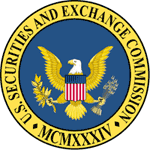SEC confirms cryptocurrency MLMs are securities offerings
 Despite the appearance of a grey area when it comes to MLM cryptocurrency companies and investment, I’ve maintained they’re still securities.
Despite the appearance of a grey area when it comes to MLM cryptocurrency companies and investment, I’ve maintained they’re still securities.
Be it Ponzi points like OneCoin or pump and dump altcoin scams, you’ve got affiliates investing real money on the promise or representation of a passive ROI; or in other words, the literal definition of a security.
Other than an enforcement action last month on a fraudulent bitcoin trading scheme, to date both the SEC and FTC have been quiet on regulation of the MLM cryptocurrency niche.
Following an investigative report into the “sales of digital assets by “virtual” organizations”, the SEC has concluded they are in fact securities offerings.
The SEC’s investigative report analyzed the sale of tokens and “Initial Coin Offerings” (ICOs).
It is no secret that this year in particular the MLM industry has been flooded with cryptocurrency offerings, many of which are run by and pitched to US residents.
Going by many names, one common justification for regulatory exemption is that it is crowdfunding.
A specific instance the SEC analyzed was the sale of DAO tokens for ether;
The DAO has been described as a “crowdfunding contract” but it would not have met the requirements of the Regulation Crowdfunding exemption because, among other things, it was not a broker-dealer or a funding portal registered with the SEC and the Financial Industry Regulatory Authority.
Rather the SEC concluded that DAO tokens were securities and that those investing were indeed classified as investors as per the Securities Exchange Act.
This was primarily ascertained on those investing doing so “with the reasonable expectation of profits derived from the managerial efforts of others”.
While the DAO offering itself wasn’t an MLM opportunity, needless to say the same applies to any MLM token-based cryptocurrency offering as the underlying principles are the same.
To date I am not aware of a single MLM cryptocurrency company registered with the SEC.
“The innovative technology behind these virtual transactions does not exempt securities offerings and trading platforms from the regulatory framework designed to protect investors and the integrity of the markets,” said Stephanie Avakian, Co-Director of the SEC’s Enforcement Division.
Despite $150 million USD raised via investment into DAO, the SEC at this time is not taking any further action.
In light of the facts and circumstances, the agency has decided not to bring charges in this instance, or make findings of violations in the Report, but rather to caution the industry and market participants: the federal securities laws apply to those who offer and sell securities in the United States, regardless whether the issuing entity is a traditional company or a decentralized autonomous organization, regardless whether those securities are purchased using U.S. dollars or virtual currencies, and regardless whether they are distributed in certificated form or through distributed ledger technology.
While the conclusion of the investigative report might not have resulted in any charges, what’s of far greater significance is what it means for the MLM industry going forward.
Make no mistake, if you’re in an MLM cryptocurrency company of any kind operated from within the US and/or being pitched to US residents, SEC registration is mandatory.
No ifs or buts, you’re participating in a securities offering and failure to register with the SEC constitutes an unregistered securities offering.
This is a violation of the Securities Exchange Act and, in the event of regulation by the SEC, will see the company and you as a promoter held accountable the same as any other Ponzi scheme.
Personally I think that while this is a welcome clarification from the SEC, it’s also long overdue. I’d ballpark estimate that around half of MLM opportunities I review these days involve a cryptocurrency offering, based on a perceived notion that securities regulation doesn’t apply.
In light of the SEC’s clarification, hopefully we see enforcement against a few of the scams operating soon.
One or two busts is all it’d take to put the brakes on new MLM cryptocurrency scams launches, so the sooner the better.


Anyone know if GCC is registered? ROTFL
(Posted on Facebook of Wes Garner, former OneCoin Ponzi “guru”)
As I said I’m not aware of a single MLM company that has anything to do with cryptocurrency being registered with the SEC.
A few busts is all it’d take to stop the fraudulent niche in its tracks, which hopefully we’ll see over the next 12 months.
Yeah, just look for a sudden exodus of all these opportunities exit the US much like the various rev share ponzis leave the US a few years ago.
More government oversight, in the name of “our safety.” That’s all we need is a little bit more government controlling us. If we have just a little bit more we’ll truly be free.
So glad they are stepping in to go after these bad people and teaching me that giving up freedom is the only way for us to be safe.
Thank you author and Behind MLM for keeping us safe from spending our crypto currencies the way we want to.
^^ Spotted the scammer.
This isn’t more oversight, it’s confirmation that existing laws regarding securities investment in the US will be upheld.
The Securities Exchange Act was entered into law back in 1933. But don’t let that get in the way of your anti-gov rant.
Here’s a tissue, princess.
@Hank:
Yeah, if you went to a bank ATM and got a message that said “The bank has decided to keep your money”, you would be screaming for some government oversight to right your wrong.